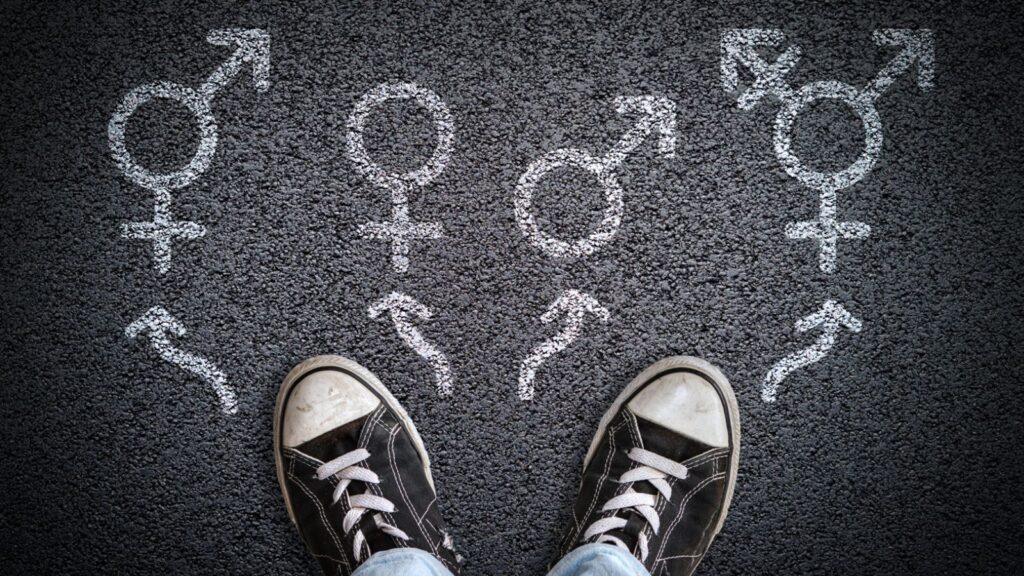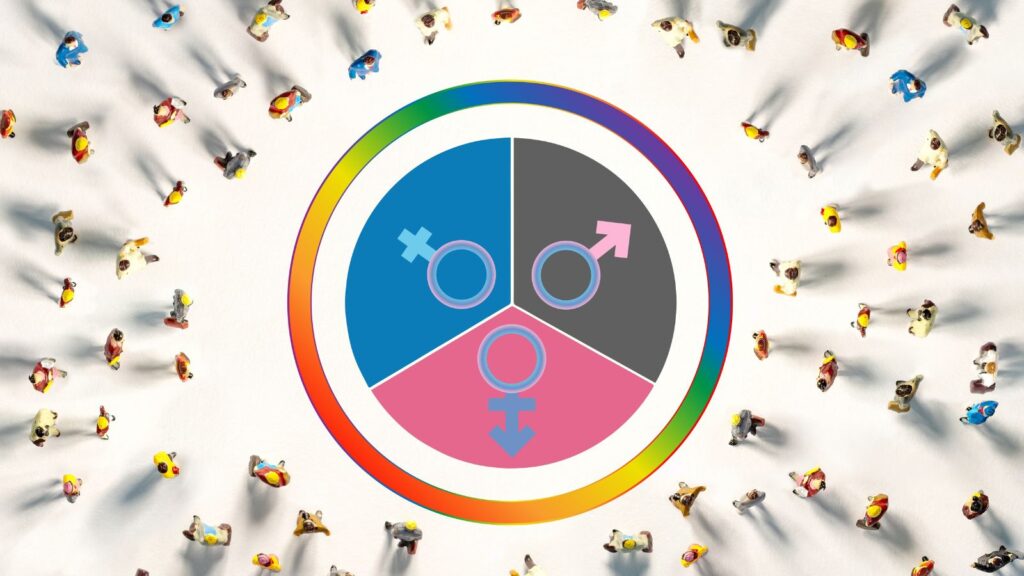A study conducted on 2,772 adolescent participants by researchers at the University of Groningen in the Netherlands revealed that gender non-contentedness overall decreased with maturity, becoming less common as adolescents grew into adulthood. This gender non-contentedness is another way of saying lack of happiness in being aligned with one’s sex. In the study, the data was analyzed in association with self-reflection, behavioral and emotional issues, and sexual orientation as an adult.
Gender Identity is a Journey

The concept of gender identity can largely influence a person’s life and happiness. It’s the experience of discovering what makes a person feel comfortable in their own skin and how to love oneself in the body despite negative and harmful external forces. It is also a journey that can change so much over time as we grow and mature.
Poor Self-Concept Leads to Gender Confusion

Self-concept is a large factor in the study and essentially means the view that we have of ourselves. It impacts how we view our personality traits, how we perceive our roles in life and our relationships with others, our hobbies and passions that are closely tied to our individuality, and how we see our interactions with those around us and the ways we feel we are contributing to the world.
Doubts Are Normal

This study showed that it is very normal for young people to have doubts about their gender identity, and it doesn’t necessarily mean those doubts will always be there. At a time where hormones are all over the place, many children experience questions about their sexuality and gender alike. There are also a lot of external societal factors and expectations that can impact what a child thinks their gender should mean for them.
Such Concerns Need to Be Validated

Not taking seriously a child or teenager’s gender concerns leads to feelings of rejection and loneliness. This will only cause the child to be more confused about who they are and to hide their true feelings.
Early Medical Treatments May Be Premature

Because a significant portion of adolescents experiencing gender dysphoria might end up finding resolution in more physically surface-level, social, or emotional ways, it may be premature to intervene medically.
We Should Err On the Side of Caution

A cautious and thoughtful approach to care for young people struggling with gender distress will likely have the best impact on their long-term well-being and physical and mental health.
Gender Non-Contentedness Leads to Lower Self Worth

A lack of self-assuredness can lead to feelings of low self-esteem and a negative self-view. Gender confusion can cause a loss of a strong identity that is integral to confidence.
Hormonal Suppression Might Help

Many adolescents with gender dysphoria deal with severe discomfort when their bodies change throughout puberty. Dealing with breast development or menstruation might be distressing for female-born youths, and erections and facial hair growth for male-born youths. Hormonal suppression for these individuals might allow them to explore their gender identity fully without the traumatic impacts of experiencing puberty in a body that perhaps doesn’t feel like theirs.
It Most Commonly Begins at Age 7

It was found that in a study of transgender adults, 73% of trans women and 78% of trans men first experienced gender discomfort by age 7.
Gender Dysphoria Has Increased

According to a Definitive Healthcare report, diagnoses of gender dysphoria rose in almost every U.S. state between 2018 and 2022. Indiana, Virginia, and Utah experienced the highest levels of increases.
Sexual Orientation Has an Impact

Participants with an increasing gender non-contentedness were more likely to be homosexual or bisexual than heterosexual.
Comprehensive Support is Necessary

Medical treatments may or may not be the answer, but one thing is clear. Adolescents struggling with discomfort and confusion about their gender need support from their families, doctors, and communities. Emotional support for the child or teen to dress and act in a way that feels right for them is integral to their development and happiness.
There Is More Confusion Among Female-Born

For unclear reasons, female sex was associated with increasing gender non-contentedness in this particular study.
Parents Have Options

For parents with children struggling with gender confusion, there are options for how to handle it. It’s important to see a doctor who can support your child and speak to them in a way they will understand. More than anything, it’s essential to show them understanding and kindness and to tell them you love them just as much, no matter what.
Gender Non-Contentedness Can Cause Behavioral Problems

The unhappiness that comes with being uncomfortable in one’s body, especially at such an integral and vulnerable age, can cause issues such as withdrawal or destructiveness. Gender dysphoria can impair one’s ability to function in society due to pressure to look or act in a way that feels associated with their assigned sex for fear of harassment or bullying.
Knowledge Gaps Hold Us Back

Transgender youth care is still a fairly new field of study, so there is a lot we don’t yet know. The more studies that are performed and research is done, the better care will be for children and adolescents with gender dysphoria.
Gender Dysphoria Can Lead to Depression and Anxiety

Unfortunately, adolescents with gender dysphoria are more likely to be depressed and anxious because of factors like lower self-worth due to societal expectations or the discomfort and unhappiness that gender confusion can lead to.
Gender is Not Cut and Dry

It’s totally normal to be confused about one’s gender identity at any age, especially during adolescence. It’s natural to want to find a label or a place we feel we belong, but fitting in a certain box isn’t for everyone, either. Feelings about one’s gender may shift and change many times over the course of life, and that is okay. What’s important is learning about gender identity and how much of it is impacted by societal expectations, as well as learning to love oneself and allow the fluidity of gender to be a beautiful thing rather than a confusing one.
18 Behaviors Branded as Low-Class by Society

18 Behaviors Branded as Low-Class by Society
18 Reasons Gen Z Believes They Should Be Paid Without Working

18 Reasons Gen Z Believes They Should Be Paid Without Working
18 Ways Parents Raise Failed Adults

18 Ways Parents Raise Failed Adults
18 Work Practices Millennials & Gen Z Refuse to Accept

18 Work Practices Millennials & Gen Z Refuse to Accept
23 Personal Topics You Should Never Share With Others

